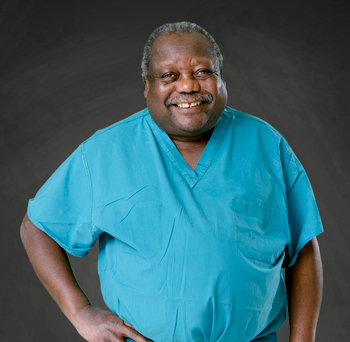The Subtle Signs of Heart Problems
 As medical director of Beebe Healthcare’s Cardiac Surgery Program, I’ve been operating on hearts for more than 40 years. I’ve seen too many patients who learn they have heart disease when they collapse from a heart attack.
As medical director of Beebe Healthcare’s Cardiac Surgery Program, I’ve been operating on hearts for more than 40 years. I’ve seen too many patients who learn they have heart disease when they collapse from a heart attack.
But an ailing heart gives off warning signs if you stop to listen. And the faster you make a change in your life — eating healthy and exercising — the less damage you’ll have to repair.
To use an car analogy, filling your tires with air at a gas station is a lot easier and safer than dealing with a blowout on the road.
Of course, taking stock of your heart health isn’t as simple as checking your air pressure.
It may not be obvious, for example, that shortness of breath during normal activity like short walks isn’t simply due to aging. After all, you may reasonably assume difficulty breathing means you have a lung problem.
And it might, but it is also a common symptom of problems with the heart, in part because it’s not able to pump enough oxygen to the lungs.
My patients who experience shortness of breath often say they’re just getting older, then slow down to compensate. But inactivity just makes their symptoms worse over time.
Shortness of breath is not the only sign your heart may be headed for trouble. As you read these signs, ask yourself not whether you feel them sometimes — we all feel lousy some of the time — but whether these symptoms interfere with daily activities like climbing stairs and going shopping.
And, remember that just because you have these symptoms doesn’t mean you have heart disease. All of these symptoms can be caused by problems other than heart disease, so your doctor is the best person to make a diagnosis.
Tired all the time
If you feel tired after a long day, that’s normal. But if you feel tired all the time, your heart may be telling you that it’s having trouble pumping enough blood to satisfy the body’s need for oxygen and, therefore, energy.
As with many of these warning signs, it can be difficult to notice in yourself. It may help to keep a diary or ask a spouse.
Your chest hurts
No, chest pain is not exactly a subtle sign of heart disease, but it is surprisingly easy to overlook.
Many of my patients mistakenly assume their chest pain is heartburn, which is caused when stomach acid backs up into your esophagus. They then take an over-the-counter medication for heartburn and wonder why it’s not working.
One sign that your chest pain is unrelated to heart pain is when it happens. While indigestion or heartburn are more likely after a meal, chest pain from heart problems often occurs late at night.
The simple fact is that all chest pain should be looked at by a doctor. We have tests that can determine whether you have a heart condition.
Look to family history
While most people should start talking to their doctor every year about heart health around age 65, people whose relatives have had heart attacks in middle age should pay closer attention a lot sooner — around age 40, if not earlier.
While older adults often experience progressively worsening symptoms, my younger patients are more likely to experience more sudden episodes, including a heart attack. These are most often men.
Heart attacks in young women are rarer because estrogen protects them from heart disease. After menopause, a woman’s odds of a heart attack rises and becomes the same as a man’s.

M. L. Ray Kuretu, MD, is a cardiac surgeon with board certification in thoracic surgery and more than 40 years of experience. He believes vigilance in discerning the subtle signs of heart health can prevent life-threatening cardiac conditions. If you have questions about heart health but don’t know who to talk to, call Carrie Snyder, Cardiac Nurse Navigator, at (844) 316-3334, or visit www.beebehealthcare.org/cardiac-surgery.
